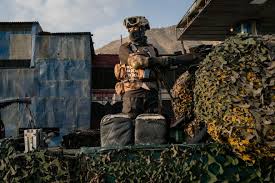A Bloody Night That Almost Slipped Into Open War.. How Did the Confrontation Between Kabul and Islamabad End?

The Ministry of Defense in the Taliban government announced on Saturday the end of the military operation launched by Afghan forces against Pakistan along the shared border, known as the Durand Line, after hours of violent clashes between the two sides.
The ministry stated in an official statement that the operation came "in response to repeated violations and airstrikes" attributed to the Pakistani army inside Afghan territory.
Details of the Operation and Reasons for Escalation
The spokesman for the Ministry of Defense, Inayatullah Khwarazmi, clarified that "the armed forces of the Islamic Emirate carried out successful operations against the Pakistani security forces," emphasizing that the operation stopped at midnight, but warned that any "new violation of Afghan sovereignty will be met with a firm response."
This escalation comes after a series of explosions that occurred in Kabul and other areas in the southeast of the country, for which the Taliban held Islamabad responsible, accusing it of "direct military intervention."
Clashes on the Border and Downed Drones
In contrast, Agence France-Presse reported local officials in the provinces of Kunar, Nangarhar, Paktia, Khost, and Helmand – all located along the Durand Line – that violent clashes erupted on Friday evening between the two sides.
A Pakistani security official in Peshawar confirmed that "Taliban forces began the attack with light weapons before using heavy artillery," adding that Pakistani forces responded with heavy gunfire and shot down three Afghan drones suspected of carrying explosives.
Exchange of Accusations Between Kabul and Islamabad
Despite Pakistan's denial of any direct role in the explosions that preceded the escalation, Kabul demanded an end to Islamabad's support for "terrorist" groups, while Pakistan accused its neighbor of harboring elements of the Pakistani Taliban (TTP).
A United Nations report earlier this year indicated that the group "receives logistical and operational support from the de facto authorities in Kabul," referring to the Afghan Taliban government.
Pakistani Warning and Rising Tensions
For his part, Pakistani Defense Minister Khawaja Muhammad Asif stated before Parliament that "efforts to persuade the Afghan Taliban authorities to stop their support for Pakistani militants have failed," stressing that his country "will not tolerate this matter any longer."
Asif added: "We must unite to respond to those who facilitate these groups, whether the hideouts are within our territory or on the Afghan side of the border."
These developments illustrate the fragility of relations between Kabul and Islamabad since the Taliban's return to power in 2021, as the two countries exchange accusations of supporting armed groups that threaten the security of each side.
Despite the announcement of the cessation of military operations, the scene remains open to new possibilities of escalation, especially in light of the absence of an effective security coordination mechanism between the two countries.